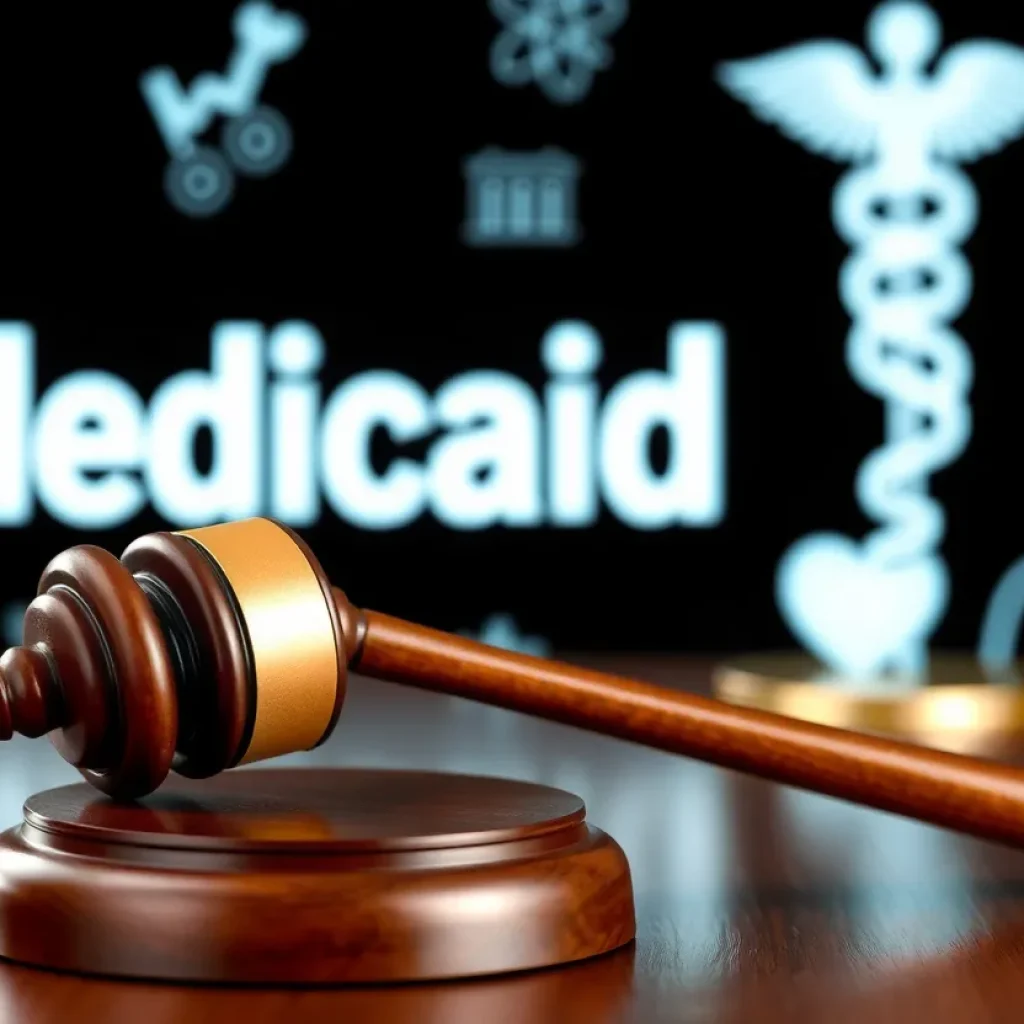Supreme Court to Review Medicaid Funding for Planned Parenthood Services
Washington, D.C. — The United States Supreme Court is set to review a critical case that could significantly impact access to healthcare services for low-income women across the country. The case, Kerr v. Planned Parenthood, will determine whether Medicaid funds can be used to pay for services at medical providers that also perform abortions. This case is particularly important given the ongoing challenges to reproductive rights in various states.
Background of the Case
The Supreme Court added this case to its docket last week, alongside another case involving the popular social media platform, TikTok. The hearing for the TikTok case is scheduled for January 10, but legal experts argue that Kerr v. Planned Parenthood carries more significant implications for the healthcare of millions of impoverished Americans.
In 2018, South Carolina Governor Henry McMaster enacted a rule that prohibited Medicaid funds from being utilized for any services at Planned Parenthood clinics in the state. The governor justified this rule by claiming that any taxpayer funding to abortion clinics amounts to a subsidy for abortion services, infringing on the so-called right to life.
The Importance of Planned Parenthood
However, this perspective overlooks that Planned Parenthood offers a wide range of essential services beyond abortion, including gynecological care, cancer screenings, and contraceptive options. Many women, especially those receiving Medicaid, rely on these services to maintain their health.
The implications of restricting Medicaid funding are profound. If the court rules against Planned Parenthood, many low-income women in South Carolina and potentially other states may find it difficult to access critical healthcare services, including contraception, which could lead to adverse health outcomes.
Legal Proceedings
After the implementation of Governor McMaster’s rule, Planned Parenthood initiated a lawsuit, winning in state court by arguing that the rule violated the Medicaid Act. The Medicaid Act clearly states that the federal government, not individual states, has the authority to determine the allocation of Medicaid funds.
In the current appeal, South Carolina argues that private entities do not have the standing to sue the state for enforcement of the Medicaid Act, which raises a crucial question: Who has the right to challenge state noncompliance with federal law?
Potential Outcomes
Legal experts are closely observing the court’s previous ruling in Health and Hospital Corporation of Marion County v. Talevski, where the justices affirmed that individuals could hold states accountable for failing to comply with federal regulations. A similar majority is hoped for in this new case, with decisions expected in June after oral arguments scheduled for March or April.
Nevertheless, the uncertainty lies in how the current Supreme Court, composed of several justices who may have opposing views on reproductive rights, will rule in this context.
Future Implications
The outcome of this case could set a significant precedent. A ruling in favor of South Carolina might further empower states to ignore federal mandates, raising serious concerns about access to healthcare beyond reproductive rights. On the other hand, a ruling favoring Planned Parenthood could safeguard access to crucial healthcare services for millions of women across the nation.
As the legal landscape surrounding healthcare and reproductive rights continues to evolve, this case underscores the ongoing battle over women’s rights in America and could have lasting repercussions for many.

Author: STAFF HERE NEWBERRY
The NEWBERRY STAFF WRITER represents the experienced team at HERENewberry.com, your go-to source for actionable local news and information in Newberry, Newberry County, and beyond. Specializing in "news you can use," we cover essential topics like product reviews for personal and business needs, local business directories, politics, real estate trends, neighborhood insights, and state news affecting the area—with deep expertise drawn from years of dedicated reporting and strong community input, including local press releases and business updates. We deliver top reporting on high-value events such as the Newberry Opera House performances, Newberry Arts Fest, and the Newberry County Fair. Our coverage extends to key organizations like the Newberry County Chamber of Commerce and the Newberry Museum, plus leading businesses in manufacturing and agriculture that power the local economy such as Amick Farms and Newberry Mills. As part of the broader HERE network, including HEREAiken.com, HEREBeaufort.com, HEREChapin.com, HERECharleston.com, HEREClinton.com, HEREColumbia.com, HEREGeorgetown.com, HEREGreenwood.com, HEREGreenville.com, HEREHiltonHead.com, HEREIrmo.com, HEREMyrtleBeach.com, HERENewberry.com, HERERockHill.com, and HERESpartanburg.com, we provide comprehensive, credible insights into South Carolina's dynamic landscape.



























